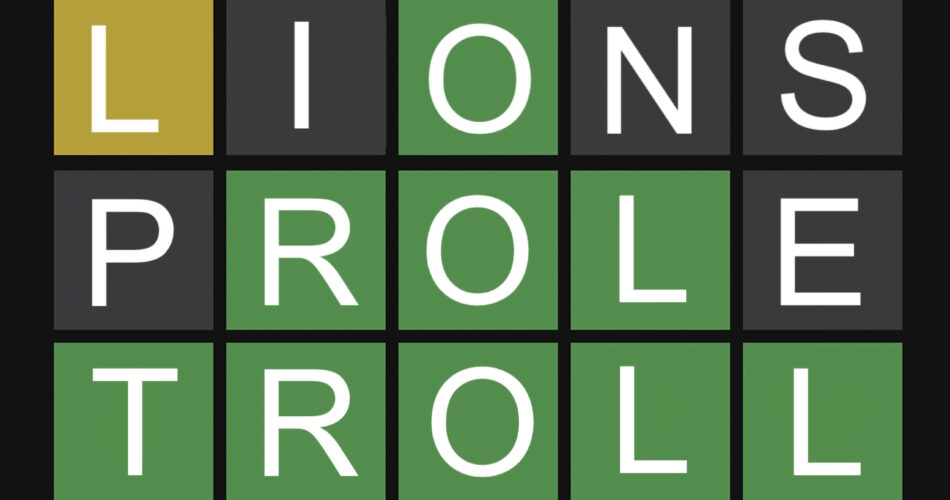In context: Wordle is a daily word puzzle created by Josh Wardle that has gone viral in the last several weeks, with players posting their results to Twitter. It has already been the target of unscrupulous developers looking to make a quick buck on the game’s coattails. Lately, its players have been getting trolled whenever posting results.
Twitter dropped the ban hammer on an account ruining Wordle players’ days. The troll was an automated bot called The Wordlinator (@wordlinator). It would search for tweets containing Wordle results, then reply with snide comments and the solution to the next day’s puzzle.
“Guess what. People don’t care about your mediocre linguistic escapades,” read one tweet from the bot. “To teach you a lesson, tomorrow’s word is *****.”
How did the bot predict the future? It didn’t, really. The Wordle web app uses a static wordlist, easily obtainable within its HTML code. Guessing the word for any day is simply a matter of reverse-engineering the algorithms the Wordle website uses, which Robert Reichel already did and posted to the internet.
Note: if you like tweeting your wordIe scores, someone’s made a bot you should block as it auto-responds with tomorrows answer pic.twitter.com/u62kBaTivn
— dan nguyen (@dancow) January 24, 2022
Twitter didn’t give a reason for banning @wordlinator, but it was likely violating one of Twitter’s automation rules. Specifically, the one that says, “[Don’t] spam or bother users, or otherwise send them unsolicited messages.”
Why someone would create a bot with the sole purpose of spoiling others’ puzzle-solving fun is like asking why there are internet trolls in general. There are just people out there who aren’t happy unless they are ruining someone else’s fun.
The Wordlinator’s creator is not the first to disrupt and stir controversy around the popular word game. About two weeks ago, Apple removed a copycat iOS app whose cocksure developer did not even bother changing the game’s name. Strangely enough, it seems that the developer’s vocal attitude on Twitter is the only thing that got his app removed as there are currently at least two copycats on the App Store that go by the name Wordle.




